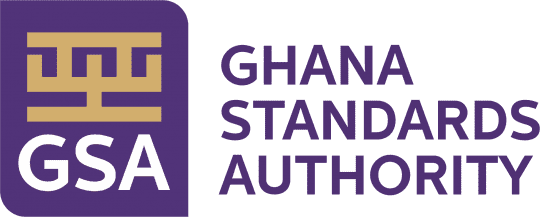By Ghana News
Copyright ghanamma

The Ghana Standards Authority (GSA) has done something not enough government agencies do—it opened its books to public scrutiny and invited stakeholders to examine exactly how it performed in 2024.
The stakeholder meeting, organized in partnership with the State Interests and Governance Authority (SIGA), the Ministry of Trade, Agribusiness and Industry, and the Ministry of Finance, brought together development partners, industry players, and the public to review key performance indicators showing the GSA achieved about 53 percent of its projected 443 standards for development in 2024.
Professor George Agyei, the GSA’s Acting Director-General, described the engagement as a milestone in building trust. “The Authority believes that engaging with stakeholders will enable it to better understand their needs and expectations, ultimately leading to more effective standardization and quality assurance in the country,” he explained during the forum.
This wasn’t just corporate speak. By presenting performance indicators, financial results, and key metrics publicly, the GSA demonstrated a willingness to operate transparently—something that matters increasingly as Ghana positions itself within the African Continental Free Trade Area (AfCFTA), where product standards and quality assurance become competitive differentiators.
Professor Agyei emphasized the GSA’s vision of delivering world-class standardization services aligned with international best practices while responding to Ghana’s unique economic needs. “We remain dedicated to enhancing our technical capabilities, expanding our reach, and strengthening partnerships that drive innovation and quality across all sectors,” he added.
Board Chairman Hudu Mogtari, a pharmacist with over 20 years of experience in the pharmaceutical sector and former Chief Executive Officer of the Ghana Food and Drugs Authority, noted that the dialogue with key partners and industry players aimed at advancing Ghana’s industrial transformation in line with the government’s flagship 24-Hour Economy policy.
The numbers tell a story of both progress and challenges. While the GSA completed 53 percent of projected standards—sending them forward for publishing and gazetting—it verified 227,156 weights, measures, and measuring instruments to ensure fair trade practices. That verification work matters because it protects consumers and businesses from fraudulent measurements that can distort markets and erode trust.
Inspections rose to 143,496 compared to 134,268 in 2023, surpassing targets by seven percent. That’s solid progress. However, the Authority issued only 1,128 certificates to locally manufactured products, falling short of the projected 1,600. That gap suggests either that manufacturers aren’t seeking certification as quickly as anticipated, or that bottlenecks exist in the certification process itself.
The meeting served as more than just a performance review. It created space to discuss persistent challenges including resource constraints, evolving industrial demands, and the need to accelerate standard development to match the pace of innovation. Those aren’t small problems—they’re fundamental issues that affect whether Ghanaian products can compete internationally.
Stakeholders commended the GSA for exceeding inspection targets and ensuring quality assurance across industries, but encouraged the Authority to strengthen technical capacity and expand collaboration to drive competitiveness under AfCFTA. That feedback recognizes a basic truth: standards and certifications aren’t bureaucratic red tape when done right—they’re tools that help local industries prove their products meet international quality benchmarks.
What makes this stakeholder engagement noteworthy is its timing. As Ghana works to transform its industrial base and compete within the continental free trade framework, the GSA’s role becomes more critical. Companies need reliable standards, quick certification processes, and confidence that their products will be recognized across borders. Whether the GSA can scale up to meet those demands while addressing resource constraints remains an open question.
By hosting this forum, the GSA has taken a proactive step toward promoting good governance, inclusiveness, and responsiveness in the standardization sector. It signals the Authority’s willingness to be held accountable—and in Ghana’s current economic environment, that transparency matters as much as the technical work of setting standards itself.



